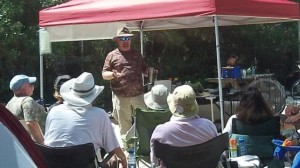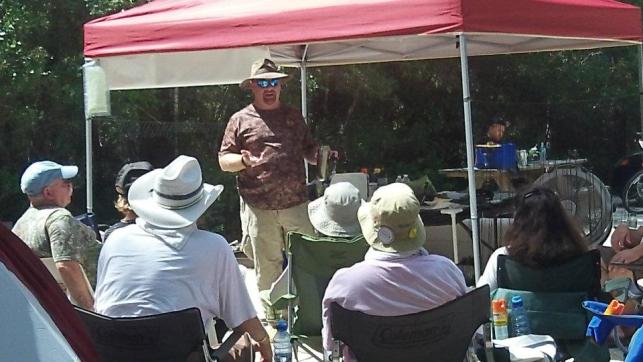
One of the first things a new prepper typically wants to do is reach out to other like-minded people in their area about prepping and trying to form a prepper group. Unless there is an established and open group in the area, it’s often very difficult to form one of these groups. Not only are preppers by their very nature (and for good reason) cautious about discussing prepping with people they don’t already know, but unless the group is advertising and is looking to get new members, you might not even know about a group that could already be in your area.
One of the key strategies for every prepper is the formation of a prepper community. Yet, as strategic as this may be, it is conceivably the most difficult of all of the prepper strategies.
There are issues, not the least of which is who do you trust, how much do you trust, and what are the limits that you place upon that trust? Sadly, there are no easy answers. That said, as I wrote in 10 Simple Strategies for Becoming A Prepper, this is something that needs to be addressed by each of us and the sooner the better.
As I wrote:
Regardless of where you live or your family situation, become a community with others. Even if your community consists of only two or three persons, these few people will serve as your support group and sounding board for the tactical decisions you will make when things get tough. In addition, …
5 Things to Think About When Forming a Prepper Community1. Establish a clear vision of the purpose of the prepper community
There are all sorts of reasons for coming together with others. Forming a community can be as simple as sharing a garden plot with all of its inherent chores, plus, of course, a share of the bounty. On the other hand, it can be as complex as the formation of a communal safe haven, where many families come together to live in close proximity, sharing work, food, supplies, defense and more.
2. Determine the requirements for membership
It would be easy to simply say that you want able-bodied people to carry out post-SHTF chores, plus, perhaps, a doctor or a nurse to take care of healthcare needs.
The reality is that your requirements will likely be a lot different than that. You may need property to grow food, or may simply need to associate with individuals who have extensive knowledge of farming, animal husbandry, butchering, herbal medicine, or a whole myriad of other skills.
3. Establish a foundation for leadership and organization
In any society there are strong leaders and there are faithful followers. Who will lead the group and by what mechanism will the leader be chosen? Will there be one leader or many? Who will settle disputes?
As with everything else, these are important questions to think through as you bring potential members of your prepper community together. To succeed, you are going to need rules. Who will set the rules and who will police them? Trust me, post-SHTF you are not going to want a free-for-all where each individual is out for himself without regard for the rest of the group.
4. Figure out a system to fairly allocate costs among community members
No one really knows if the paper currency we currently use will be worth anything down the road. Likewise, no one really knows whether an EMP or cyber attack will shut down financial systems and render the banking system defunct.
That said, all communities have costs that must be allocated among the members. Food, supplies, fuel, firearms, and ammunition require money, at least when first starting out. If it is your vision to share, how do your fairly allocate the burden? How will you assign a “dollar value” to skills? Will they all have equal value? More importantly, should they all have equal value?
5. Do some personal soul searching to determine your motives and your goals
Why do you want to either form or become a member of a prepper community? This is the time to be open and honest with your own inner feelings.
Perhaps you are concerned about defense. Or perhaps you fear a time will come when in spite of your vast world knowledge, age or health considerations will not allow you to manage all of the self-sustaining survival chores on your own. Perhaps you live in an rough urban area and need somewhere to go when and if things get bad.
Why This and Why Now?
Great question and I am glad you asked.
I have been prepping for a number of years now. I have all manner of gear including supplies to stay warm during the cold, cook outdoors when there is no power, and secure clean drinkable water when the tap runs dry. I also have a robust food pantry and an extensive knowledge of essential oils and herbal remedies to help me get by when food and medicine are no longer available at supermarkets and drugstores.
The Final Word
As there are no easy answers, there is also no “one size fits all” answer either. It is safe to say that every prepper realizes that a self-sufficient lifestyle is hard work. It takes time, energy, and to a great extent, money. Being part of a community can take the burden off of all of these factors and offer many other benefits as well.
I don’t want to have my head in the sand and neither should you. I hope that these very real considerations for forming a prepper community resonate with you and that you take the time to think through why you are prepping and what you hope to find in a community.
Over the next year, I plan on sharing more think pieces with you. They may not be fun to read but indeed, they are important. At the end of the day, whatever we do and whatever we become, it is the gray matter between our ears that counts. Let us use it to survive.
You could very well lose out on the opportunity to make a good friend just because you’re too concerned about zombies, pandemics and what the latest SHTF articles tell you to do. They’re not just preppers, they’re people too, and if you really want them to be around in a disaster to help you, you’re going to have to develop a friendship based on trust and mutual interests, not SHTF and Doomsday fear.
Please Read this Article at NaturalBlaze.com





Leave a Reply